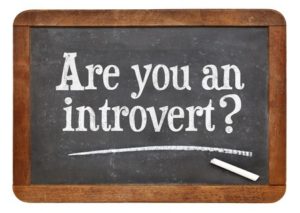By Rose O. Sherman, EdD, RN, FAAN
Introverts living under the Extroversion Ideal are like women in a man’s world, discounted because of a trait that goes to the core of who they are. Extroversion is an enormously appealing personality style, but we’ve turned it into an oppressive standard to which most of us feel we must conform” Susan Cain
One of my students recently told me that she had not applied for a leadership opportunity because she worries that she is simply too introverted. Her concerns are not unusual among introverts. Many times when we hear about leaders, the descriptions are about how they are powerful, charismatic and outgoing. In the United States, we tend to overvalue extroversion often viewing it as a key leadership quality. Yet, many widely respected current and past world leaders were or are introverts. These include notable individuals such as Albert Einstein, Al Gore, Warren Buffet, Eleanor Roosevelt, Bill Gates, Abraham Lincoln and Ghandi. Susan Cain is the author of an important book that has achieved international acclaim, Quiet: The Power of Introverts in a World That Can’t Stop Talking. She contends that introverts are often more creative and careful in their approach to managing problems and risks. Introverts provide important balance in organizations, and there is a need for both introverted and extroverted leaders.
Introversion versus Extroversion
The terms introversion and extroversion to describe dimensions of personality were first introduced by the psychiatrist, Carl Jung. Extroversion is described in wikipedia as “the act, state, or habit of being predominantly concerned with and obtaining gratification from what is outside the self”. Extroverts draw energy from being with others, and are prone to boredom when they are by themselves. By contrast,Introversion is “the state of or tendency toward being predominantly concerned with and interested in one’s own mental life” Introverts draw energy from being in quiet reflection and lose energy when interacting with large groups of people. These dimensions of personality are thought be on a continuum with some individuals being extremely extroverted, some in the middle and some very introverted. It can be very difficult for extroverts to understand introverts, and their need to spend time alone.
Strengths of Introverted Leaders
Although extroversion has historically been thought to be important in leadership, there are those that argue that today’s workplace and workforce are better served by more introverted leaders with high degrees of emotional intelligence. David Rock, in his book, Quiet Leadership: Six Steps to Transforming Performance at Work, cites recent neuroscience research that argues effective leaders should focus on mentoring, empowering and developing people, behaviors that are more consistent with introverts than extroverts. Introversion does not mean that a leader is shy, fearful or unable to take action. Rather it is a way of processing the world and information. Some strengths of introverts include the following:
- They think first and talk later.
- They focus on depth rather than superficiality
- They exude calm
- They are comfortable with the written word
- They are more inclined to empower employees
Avoiding the Pitfalls of Being an Introverted Leader
Introverted leaders have great strengths but also have some weaknesses that can be pitfalls in a nursing leadership position. The need for solitude can lead staff to think that they are aloof, arrogant and even unfriendly. Although it may be difficult for the introverted leader, it is important to get out of the office and interact with staff, families and peers. Introverted leaders often find social events draining and avoid attending them. It is important to push yourself to go even for short periods of time. Because introverts relish privacy, introverted leaders need to work harder to help people to know who they are.
Introverted nurses can and do make great nurse leaders. One of the best nurse leaders that I know is very introverted. She readily shares this tendency with her staff, and even jokes about her occasional need for solitude as she leaves social events. She offers excellent guidance for introverted nurse leaders – know who you are, be honest with others but push yourself outside your comfort zone when it is important.
Read to Lead
Cain, S. (2012). Quiet: The Power of Introverts in a World That Can’t Stop Talking. New York: Crown Publishers.
Smith, J. (September 4th, 2014). Business Insider. Here’s why introverts can be the best leaders.
Williams, R. Why it’s Time for Quiet, Introverted Leaders. Psychology Today Blog, May 25th, 2012.
© emergingrnleader.com 2016



 LinkedIn
LinkedIn Instagram
Instagram